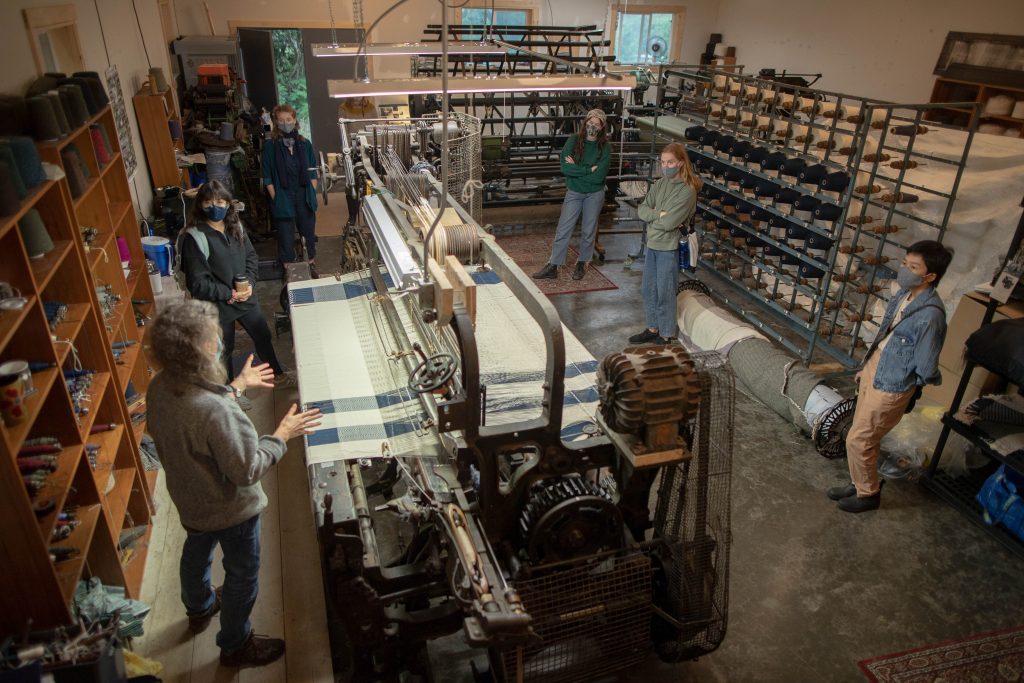Fibreshed Field School Reimagines Sustainability, Starting with the Clothes on Your Back
Supporting our local community isn’t a new idea, but it feels more urgent these days. The longevity and health of our local neighborhoods should matter to all of us, which is why we should all be paying attention to and learning from the Shumka Centre for Creative Entrepreneurship’s Fibreshed Field School.
According to ECU Research Faculty Lead Emily Smith, Fibreshed Field School is a community-activated program that connects a wide range of artisans, farmers, and educators with our local fibre systems and supply chains. “Fibreshed Field School is learning about the local land, local materials and to really show people how it could be done and that we could actually make it happen,” she explains.
The experimental initiative is wrapping up at Emily Carr, where it explored how to build truly sustainable BC communities that can depend on local textiles to provide clothing for our people.

Warping and Weaving Cohort at Magee Cloth
Photo by Benny Zenga
Emily founded the Fibreshed Field School through the Shumka Centre, and has been building connections for the organization since 2012. “I started this network inspired by Rebecca Burgess,” she says.
In 2010, Rebecca founded the Fibreshed network of sustainable agriculture, regional textile development and carbon farming in Northern California. She spearheaded an innovative approach to textile manufacturing, and published a book, also called Fibershed, in 2019.
Emily has boldly reimagined BC’s textile industry, as Rebecca did California’s. Emily says her focus with the field school is to put education at the centre of it all: to look at the cultural side of how we consume our clothes and textiles in order to change the way we, consumers, respond and react to the world around us.
After speaking with students and educators involved in the Field School, it is clear the program represents a new way to connect with and build a more sustainable community beyond the classroom.
Find the whole article on Emily Carr University News
